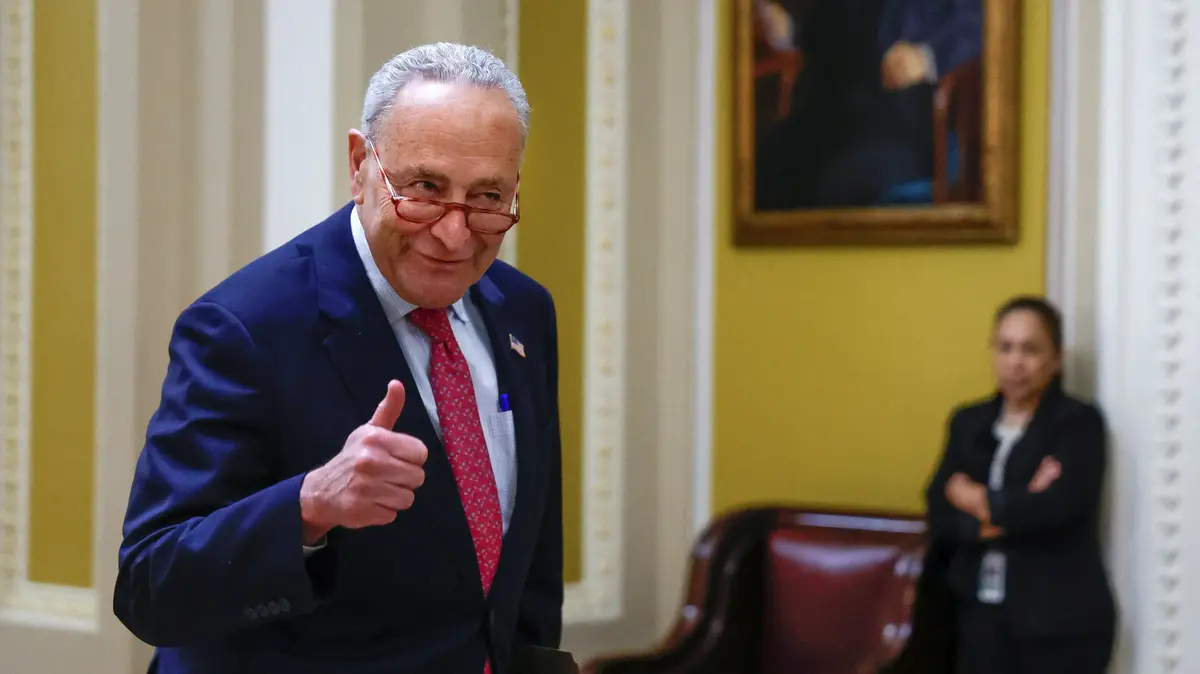Israel faces a change of cycle this Sunday after 12 years of consecutive terms of conservative Benjamin Netanyahu, 71, as prime minister. The Knesset (120-seat parliament) is preparing to give a vote of confidence to a new government made up of eight parties that span the entire political spectrum, including one from the Arab minority for the first time. Despite the fact that he only contributes seven deputies to a coalition that should be supported by 61 seats, the ultra-nationalist Naftali Bennett, 49, is submitting to the inauguration on behalf of a heterogeneous coalition of forces with a minimum program.The only real amalgamation of this Executive is to take down Netanyahu before he drags the Israelis to a fifth election in little more than two years in order to protect himself from the process that justice opened in 2019 for fraud and bribery.
The Israeli opposition has failed to find another formula to remove from power the prime minister who has ruled the longest in the history of Israel: 15 years if his first term (1996-1999) is added.
"Netanyahu tries to bring the whole country to his personal Masada," Bennett warned two weeks ago when he confirmed that he joined the project of the "Government of change" and was definitely breaking with the right.
The mention of the collective suicide of hundreds of Jewish nationalists before being defeated by the Roman legions in a fortress by the Dead Sea, nearly two millennia ago, was a powerful image of the dangers derived from polarization of society and the blockade of the institutions because of the stubbornness of the prime minister to stay in office.
More information
Yair Lapid, the reformist who sacrifices himself to bury the Netanyahu era
Netanyahu agitates accusations of electoral fraud before the formation of an alternative government
The natural leader of the opposition, the centrist Yair Lapid, at the head of the second largest Knesset force after Netanyahu's Likud, sacrificed himself to give Bennett, who was twice the number of seats, the leadership of the new Cabinet. during the first half of the legislature.
Both will take turns in office in just over two years and will govern in coordination, with the right of reciprocal veto over essential decisions, through a rotation pact.
In Israel's fragmented parliamentary system there are precedents for other governments of national unity, such as the one agreed 37 years ago by Labor Simon Peres and conservative Isaac Shamir.
The Israelis believe that Bennett and Lapid's coalition with six other disparate partners will be short-lived. 43% of citizens believe that it will be short and 30% that it will only last for a while, according to a survey broadcast by Channel 12 (private) television. And only 11% bet that he can complete the legislature. “The safeguard clauses and guarantee mechanisms of the agreement will not save the new government from falling apart. Only mutual trust will do, ”argues analyst Nahum Barnea in his column in
Yedioth Ahronoth.
Lapid has already shown restraint and perseverance. Now it is Bennett's turn to demonstrate his leadership skills ”, he says.
The first challenge that both will face to send a message of credibility will be the approval of state budgets, the first since 2019, aimed at strengthening the health system and reactivating the economy after the pandemic, which Israel is preparing to leave behind in the next few days with the end of the mandatory use of masks in closed places. They will also have to agree, according to the coalition pact, on the limitation of the number of consecutive terms - two or up to eight years - at the head of the Government, in a measure that may close the way to a possible immediate return of Netanyahu from the opposition. And they will even have to agree on the decriminalization of marijuana use and the regulation of its recreational use.
What the agreements do not contemplate are the thorny issues that can bring down the government. No progress is expected in the negotiations with the Palestinians - suspended since 2014 - from a Cabinet where
hawks in
favor of the annexation of the West Bank
sit
, like Bennett himself, along with
pigeons
defending the two-state solution, in the case of Lapid and Labor.
The
status quo
on the social role of Judaism is also presented as a red line that neither the religious Bennett nor the secular Lapid have preferred not to cross. It is not foreseeable that public transport or the general opening of business premises will be authorized on the Sabbath, the holy day of rest, although the coalition claims to end the monopoly of the ultra-Orthodox in the remunerative certification of food and
kosher
premises
,
adjusted to the religious law. The incorporation of students from the
yeshivas
(rabbinical schools) into military service, from which they are exempt in practice, is another of the coalition's sticking points. From the ranks of the haredíes or fearing God, it has not been slow to excommunicate
de facto
to Bennett and urge him to stop wearing the kippah, the round cap worn by practicing Jews.
The coalition will also try to seal open wounds in the recent outbreak of sectarian violence between Jews and Arabs in cities with mixed populations.
At the head of a small Arab party with four decisive seats in the Knesset, the Islamist Mansur Abbas has started a budgetary commitment to invest more than 13,000 million euros in housing, infrastructure and security policies for the communities of Palestinian origin, which group together one fifth of the 9.3 million Israelis.
His presence in the government pact is unprecedented, although the conservative religious Abbas, related to the Muslim Brotherhood, has also imposed a veto on the establishment of civil marriage for homosexual couples.
Jewish nationalist march in Jerusalem
On paper, the unstable balances of the eight-party coalition pact appear to be offset. But managing everyday reality will test your consistency. Bennett and the "Government of Change" will soon have to show whether they are more of the same or represent a new cycle. Police authorized a massive radical Jewish nationalist march in Jerusalem's Old City on Tuesday. They will not cross the Muslim quarter, as was initially planned, but they will skirt it and gather with flags of the Star of David at its main access: the emblematic Damascus Gate. A month ago, the provocative parade had to be suspended by the firing of rockets from Gaza into Jerusalem after an ultimatum from Hamas.
The new Cabinet will also face in the coming days the demolition of the wild settlement (not authorized by Israel) of Evyatar, in the north of the West Bank, and the forced eviction of dozens of extremist settlers by court order.
It remains to be seen how Bennett, who a decade ago was the chairman of the Yesha Council, the West Bank's main settler organization, will react.
“The Government will work together for religious, secular, ultra-Orthodox, Arab Israelis.
For all without exception ”, is the mantra that the new prime minister has chanted so far to dispel doubts and make the hope of the political consensus green after the final stage of Netanyahu's“ scorched earth ”.
For the outgoing prime minister, the pact of almost all the opposition with the sole purpose of dethroning him amounts to a "conspiracy of the deep state" incarnating in "a dangerous leftist government", despite the fact that most of its members are framed in the center right. His complaint against the "electoral fraud of the century in Israel" brings echoes of the resounding exit from power in the US of Republican Donald Trump, with whom Netanyahu led an illiberal populist international in which the Hungarian Víktor Orban, the Indian Narendra Modi still subsist or the Brazilian Jair Bolsonaro.
"Netanyahu had become his own worst enemy because of his egocentricity, public and private paranoia, greed and constant incitement to violence," points out the causes of his fall in
Yedioth Ahronoth
economic analyst Sever Plocker. Faced with those who highlight his legacy of exponential growth during four chained terms since 2009, Plocker questions the "social scandal that has left more than two million Israelis below the poverty line."

/cloudfront-eu-central-1.images.arcpublishing.com/prisa/DQOHQSBTNZNQZSFIY54GECE6QU.jpg)

/cloudfront-eu-central-1.images.arcpublishing.com/prisa/57W3XJJOEVD6DPVJCW54P3NVUE.jpg)





